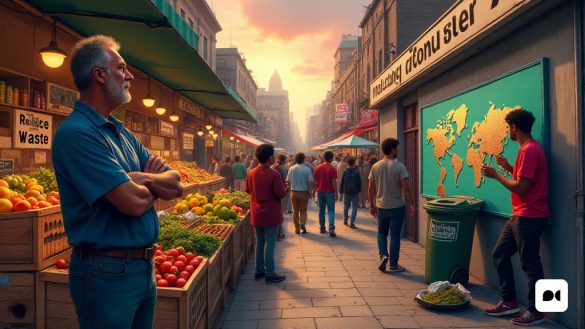The importance of living and not dictating
A good friend made me a recommendation that made me think deeply: “Stop telling others what to do and better dedicate yourself to living.” This phrase, which surprised me at a delicate moment, made me reflect on how we often try to direct the lives of others without considering our own experiences.
The tragedy of food waste
Last year, statistics revealed that more than a billion meters were wasted every day, while 783 million people fought against hunger. This contrast is shocking and forces us to question our priorities and the value we give to food.
Alarming data
According to the United Nations Environment Program report (PNUMA), in 2022, 1,050 million tons of wasted foods were generated, most of which came from our own homes. This reality shows that most waste does not occur in large companies, but in our everyday life.
The Impact of Food Transportation
The transport of foods worldwide contributes to about 20% of greenhouse gas emissions. It is ironic that products such as coffee or pineapple travel thousands of miles while we have local alternatives available. In addition, this situation feeds a cycle of waste that affects both our planet and our health.
Agrodiversity in danger
The loss of agrodiversity is another consequence of our current food model. According to FAO, we have lost 90% of the varieties of crops in just over a century. This not only affects biodiversity, but also jeopardizes the food safety of the future.
Diseases related to feeding
The way we feed has direct impact on our health. Obesity is one of the great challenges of the world today, with millions of deaths associated each year. The data on childhood obesity is equally worrying, with alarming percentages in various regions.
Hidden costs of food diseases
Unhealthy eating habits generate a hidden health cost of over eight trillion a year. As we move on, it is crucial that we recognize the importance of a balanced and sustainable diet, both for our health and for that of the planet.
Toward a more conscious future
I wish to live in a world where competition is replaced by collaboration. With food that was wasted in Europe and the United States, we could feed the world population several times. We reflect on the words of Inger Andersen: “Food waste is a global tragedy.” If we do not change, we will continue to pay the price of this irresponsibility.

